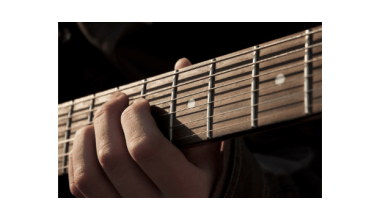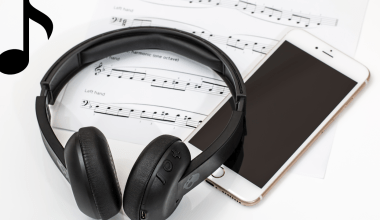Starting a music blog can be one of the most exciting ways to share your passion for music with the world. Whether you’re a die-hard fan, a musician, or someone who simply loves discovering new sounds, a music blog is your stage to let your voice be heard. The best part? You don’t need to be a tech wizard to get started.
In this guide, I’ll walk you through everything you need to know about starting your own music blog. From picking a niche to writing your first post, you’ll have all the tools to build a blog that resonates with your audience. Let’s dive right in!
Why Start a Music Blog?
Music has a unique way of connecting people. Starting a music blog allows you to:
- Share your favorite artists and tracks.
- Build a community of like-minded music enthusiasts.
- Gain opportunities to collaborate with artists, record labels, or brands.
- Earn money through ads, sponsorships, or affiliate marketing.
The possibilities are endless. If you’ve been dreaming of a way to turn your love for music into something more, this is your sign to start!
Step 1: Choose Your Niche
Before you jump into creating content, it’s important to decide what your blog will focus on. The music world is vast, so narrowing down your niche will help you stand out. Here are some ideas:
- Genre-Specific Blogs: Focus on pop, rock, hip-hop, jazz, EDM, or any genre you’re passionate about.
- Local Music Scene: Highlight artists and events in your city or region.
- Music Reviews: Share your thoughts on albums, singles, or concerts.
- Interviews: Feature conversations with musicians, producers, or industry experts.
- Music Tips: Offer advice for budding musicians or music fans.
Take some time to think about what excites you the most. Your niche will shape the direction of your blog and attract your ideal audience.
Step 2: Pick a Memorable Name
Your blog’s name is its identity. It should be catchy, easy to remember, and related to music. Here are a few tips:
- Use music-related words or phrases.
- Keep it short and simple.
- Avoid overly complicated names that are hard to spell.
- Check if the domain name is available.
For example, names like “Chords & Beats,” “The Music Junction,” or “Rhythm Reviews” instantly tell readers what to expect.
Step 3: Set Up Your Blog
Now that you have your niche and name, it’s time to set up your blog. Don’t worry—you don’t need to be a tech expert to do this. Follow these simple steps:
- Choose a Blogging Platform: Popular options include WordPress, Wix, and Squarespace. WordPress.org is highly recommended for its flexibility and customization options.
- Get a Domain Name and Hosting: Your domain is your blog’s web address (e.g., www.mymusicblog.com). Hosting is the service that keeps your site online. Platforms like Bluehost, SiteGround, or HostGator are great for beginners.
- Install a Theme: Pick a design template that suits your style. Many platforms offer free and paid themes, so you can customize your blog’s look without any coding.
- Install Essential Plugins: If you’re using WordPress, plugins like Yoast SEO, Jetpack, and Akismet will enhance your site’s functionality.
Step 4: Plan Your Content
Content is the heart of your blog. To keep your readers coming back, you’ll need to create engaging, valuable posts. Here’s how to get started:
- Create a Content Calendar: Plan out your topics for the next month or two. This helps you stay consistent and organized.
- Mix It Up: Include reviews, interviews, opinion pieces, and how-to guides.
- Focus on Quality: Your posts should be informative, entertaining, and well-written.
- Use Multimedia: Incorporate images, videos, and audio clips to make your posts more dynamic.
Pro Tip: Use your focus keyword, “how to start a music blog,” and its synonyms naturally throughout your posts to improve your SEO.
Step 5: Promote Your Blog
What’s the point of writing amazing content if no one sees it? Promotion is key to growing your audience. Here are some effective strategies:
- Leverage Social Media: Share your posts on platforms like Instagram, Twitter, Facebook, and TikTok. Engage with your followers by asking questions and replying to comments.
- Join Online Communities: Participate in music forums, Reddit threads, or Facebook groups to connect with like-minded people.
- Collaborate: Partner with other bloggers or musicians for guest posts or cross-promotions.
- Email Marketing: Build an email list to send updates directly to your readers.
Step 6: Monetize Your Blog
Once your blog gains traction, you can start earning from it. Here are a few monetization options:
- Ads: Use platforms like Google AdSense to display ads on your site.
- Affiliate Marketing: Promote music-related products and earn a commission for every sale made through your links.
- Sponsored Posts: Collaborate with brands or artists to create paid content.
- Merchandise: Sell branded T-shirts, mugs, or other products.
Step 7: Stay Consistent
Starting a blog is exciting, but maintaining it requires dedication. Here are a few tips to stay consistent:
- Set realistic goals for how often you’ll post.
- Keep learning about blogging and SEO.
- Don’t be afraid to experiment with new ideas or formats.
- Remember why you started. Your passion for music will keep you going!
Final Thoughts
Starting a music blog is a journey that combines creativity, passion, and a bit of technical know-how. By following these steps, you’ll be well on your way to creating a blog that not only reflects your love for music but also resonates with readers worldwide. So, what are you waiting for? The world is ready to hear your voice.
For further reading, explore these related articles:
- Bruno Mars Latest Songs: A Musical Journey You Don’t Want to Miss
- Why Every Creative Should Invest in an Artista Studio Desk
For additional resources on music marketing and distribution, visit DMT Records Private Limited.






